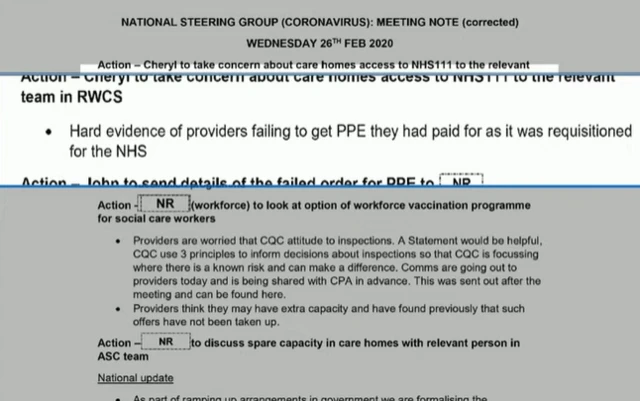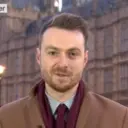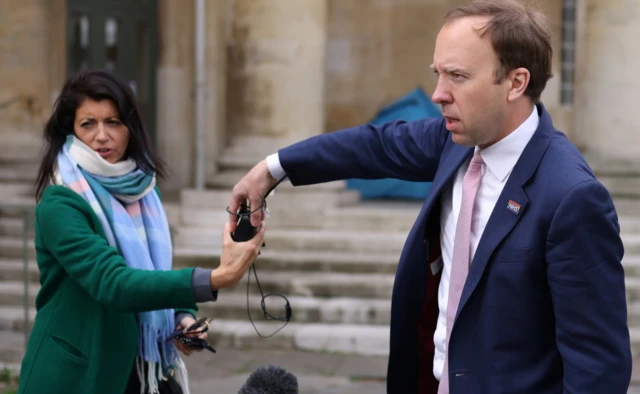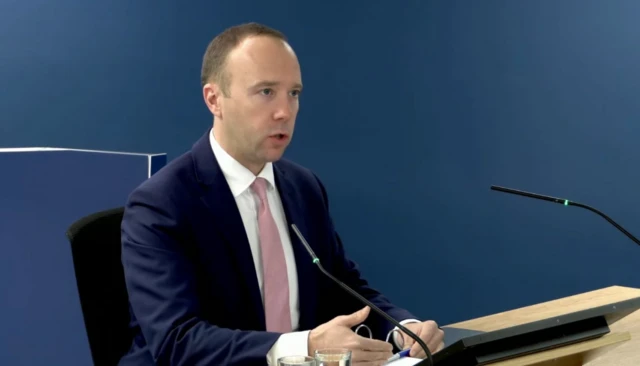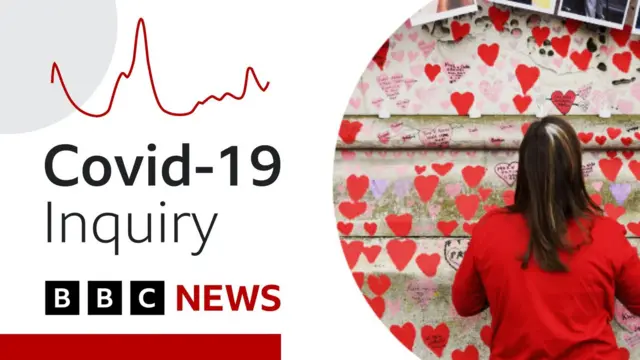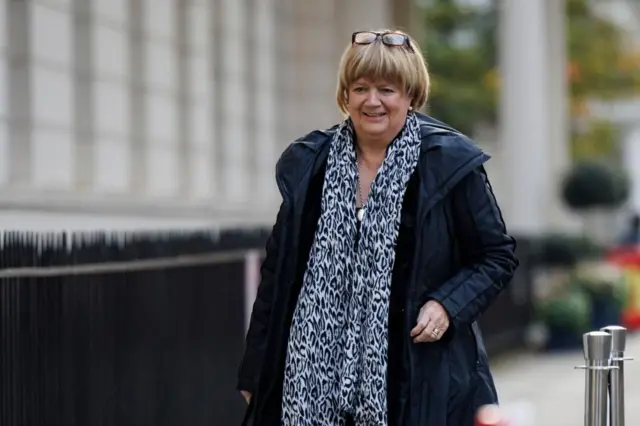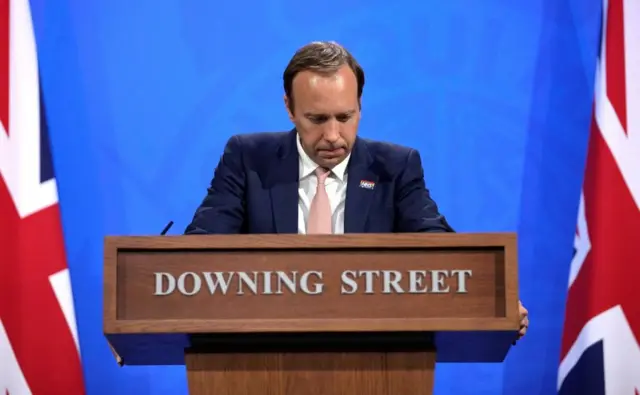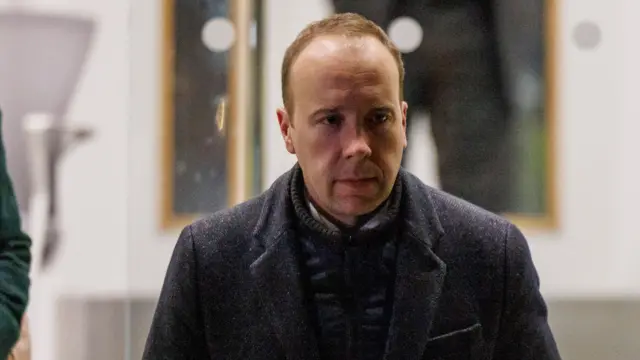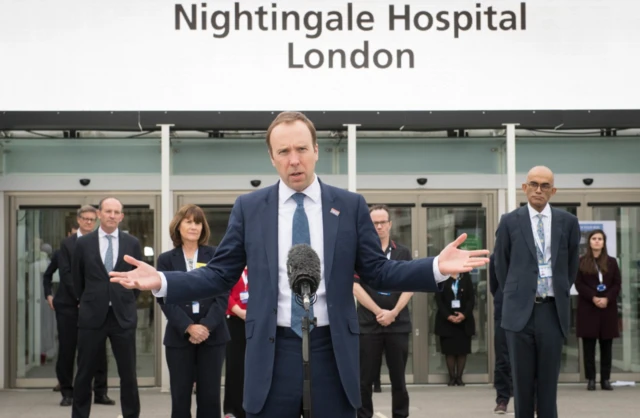What help was there for care homes in March 2020?published at 11:20 GMT 1 December 2023
Now questions move forward to March 2020.
Anna Morris KC asks why measures for older people - mentioned in a 9 March Cobra meeting - were "undetermined".
Hancock says they were putting together the shielding programme at the time, which he says was "extremely successful".
He adds that looking after people in care homes was a "very important area that we were working on".
Asked what concrete measures there were for care homes at the time, when hospitals were told to discharge patients, Hancock says we "issued guidance" along with giving them free PPE.


